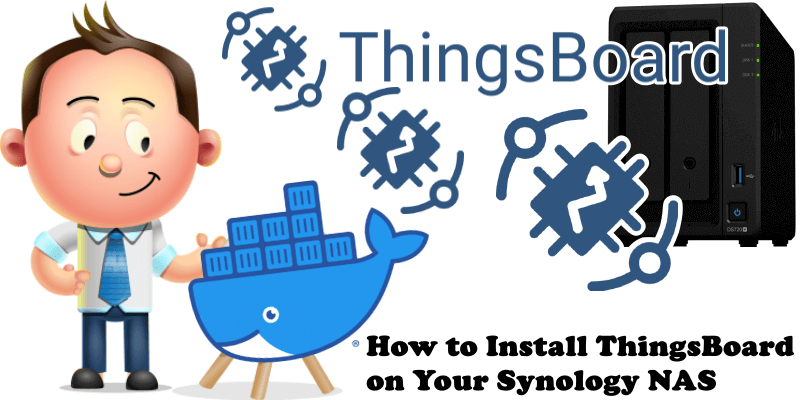
ThingsBoard is an open-source IoT platform for data collection, processing, visualization, and device management. It supports cloud and on-premises deployments, and it combines scalability, fault-tolerance and performances to nullify the chances of getting your IoT data lost. In this step by step guide I will show you how to install ThingsBoard on your Synology NAS using Docker.
STEP 1
Please Support My work by Making a Donation.
STEP 2
Install Container Manager via Synology “Package Center”. If you run an older DSM version (under 7.2), search for Docker instead of Container Manager.
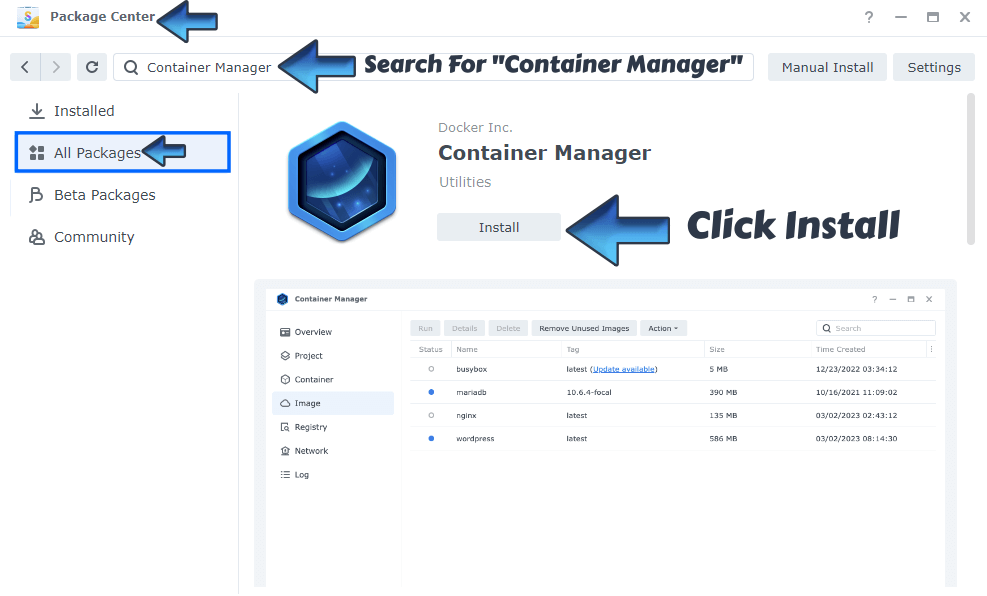
STEP 3
Go to File Station and open the docker folder. Inside the docker folder, create one new folder and name it thingsboard. Follow the instructions in the image below.
Note: Be careful to enter only lowercase, not uppercase letters.
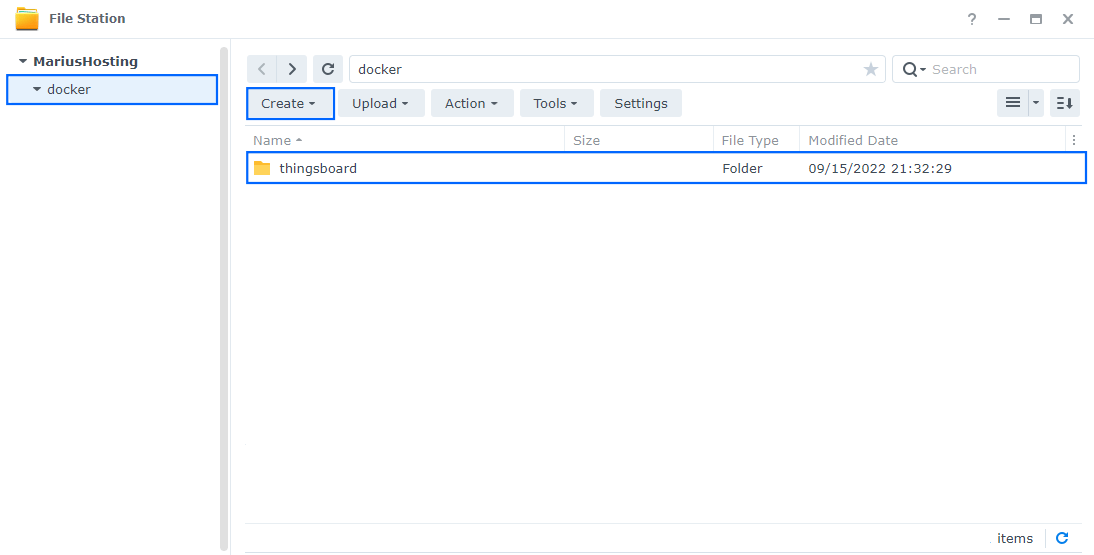
STEP 4
Now create two new folders inside the thingsboard folder that you created at STEP 3 name one “data” and the other “logs“. Follow the instructions in the image below.
Note: Be careful to enter only lowercase, not uppercase letters.
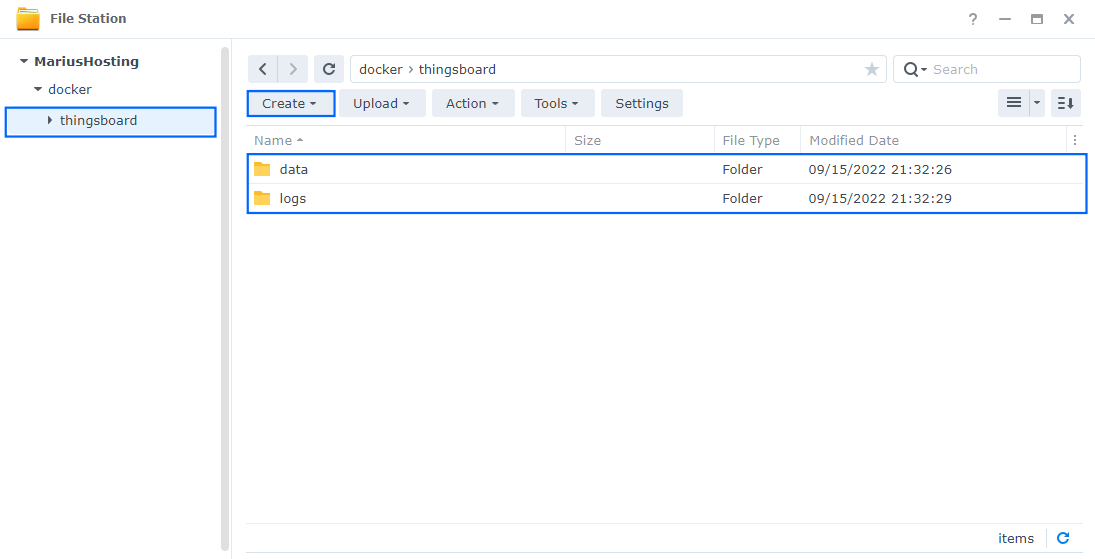
STEP 5
Right click on the thingsboard folder that you have previously created at STEP 3 then click Properties. Follow the instructions in the image below.
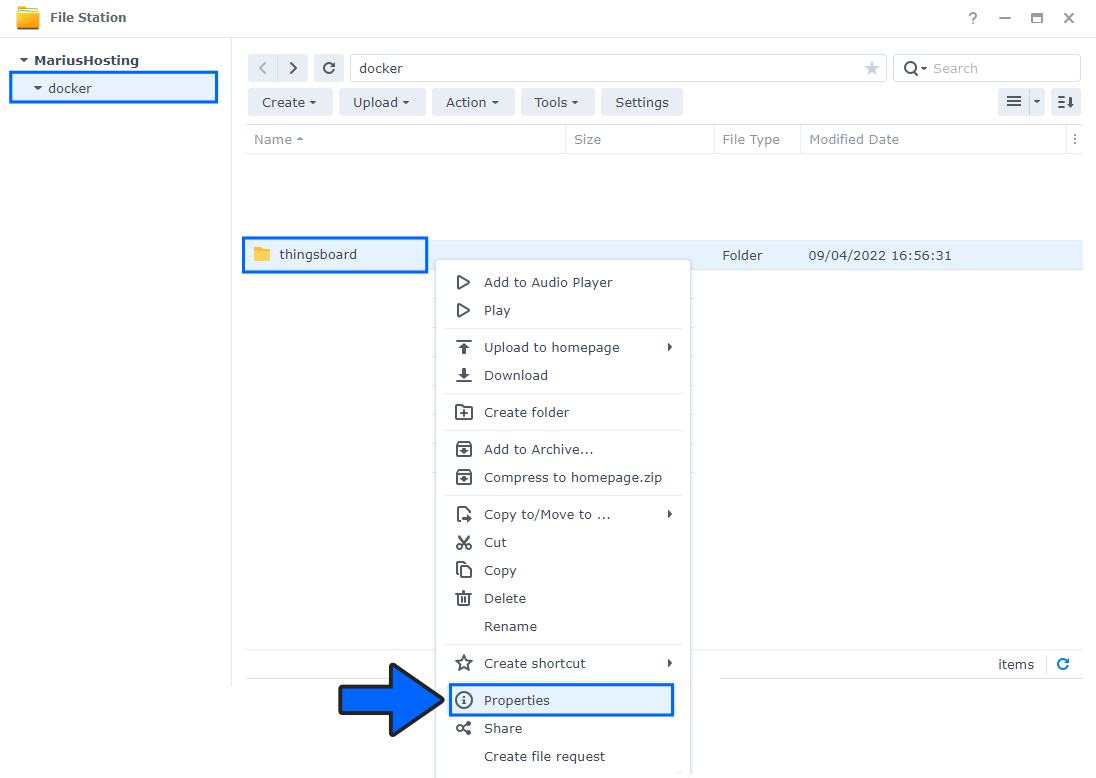
STEP 6
Go to the Permission tab, then click Create. Follow the instructions in the image below.
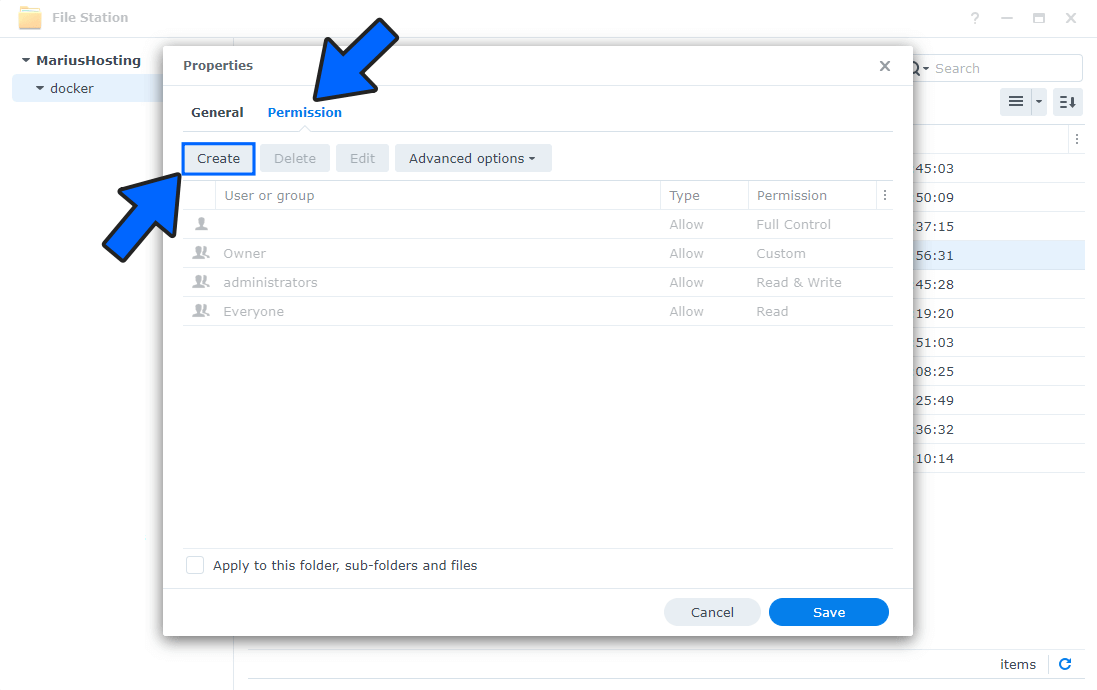
STEP 7
From the User or group dropdown menu, choose SYSTEM then check all Read and Write Permissions. Click Done. Follow the instructions in the image below.
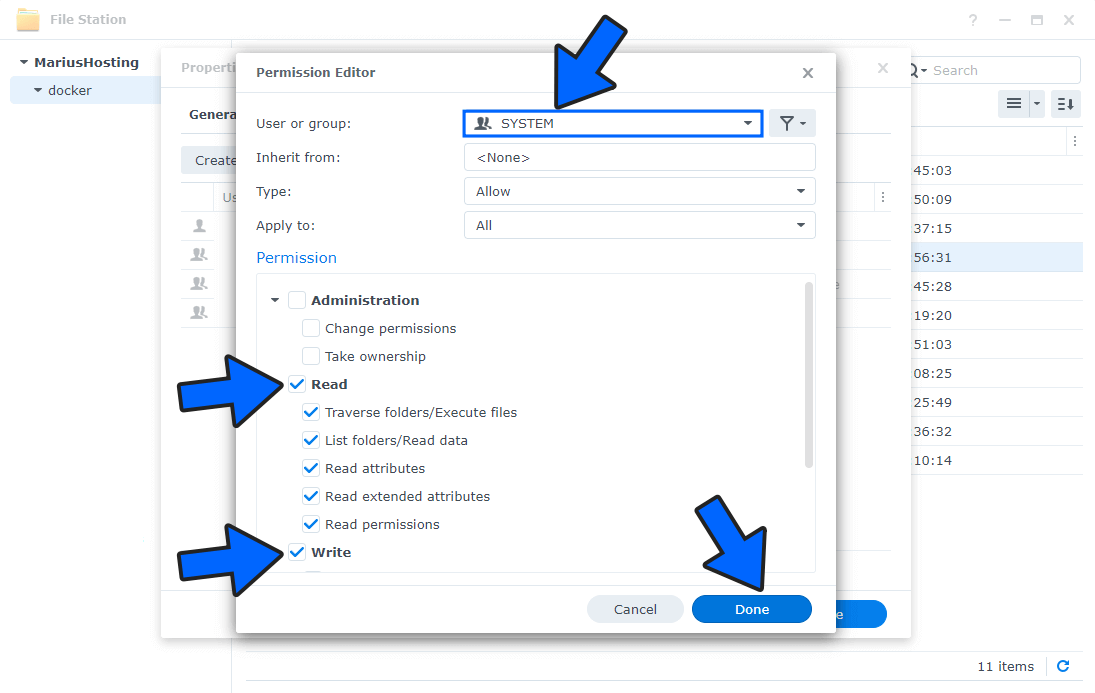
STEP 8
After you click Done on STEP 7, check “Apply to this folder, sub-folders and files“. Click Save. Follow the instructions in the image below.
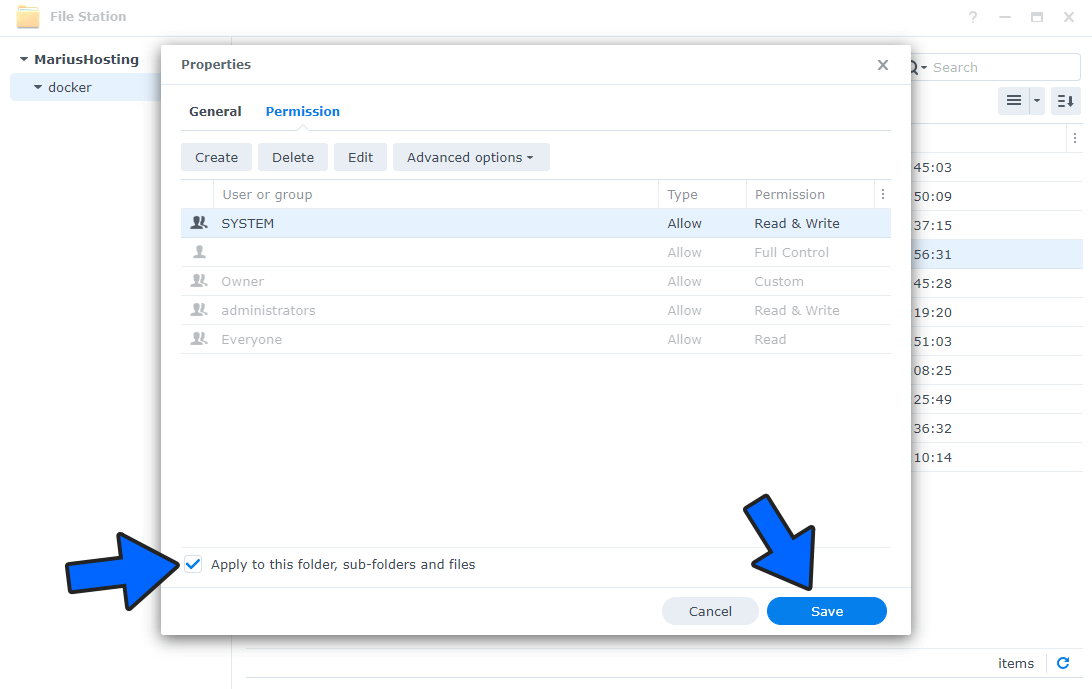
STEP 9
Go to Control Panel / Task Scheduler / Create / Scheduled Task / User-defined script. Follow the instructions in the image below.
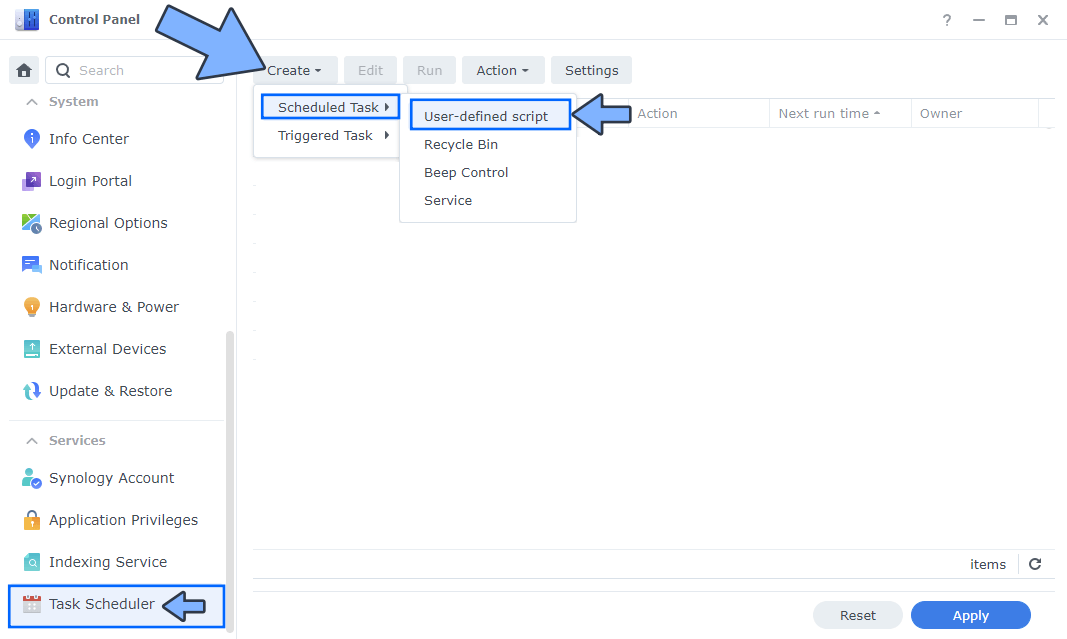
STEP 10
Once you click on User-defined script, a new window will open. Follow the instructions below:
- General: In the Task field type in Install ThingsBoard. Uncheck the “Enabled” option. Select root User.
- Schedule: Select Run on the following date then select “Do not repeat“.
- Task Settings: Check “Send run details by email“, add your email then copy paste the code below in the Run command area. After that, click OK.
docker run -d --name=ThingsBoard \ -p 9090:9090 \ -p 1883:1883 \ -p 7070:7070 \ -p 5683-5688:5683-5688/udp \ -e TB_QUEUE_TYPE=in-memory \ -v /volume1/docker/thingsboard/data:/data \ -v /volume1/docker/thingsboard/logs:/var/log/thingsboard \ --restart always \ thingsboard/tb-postgres
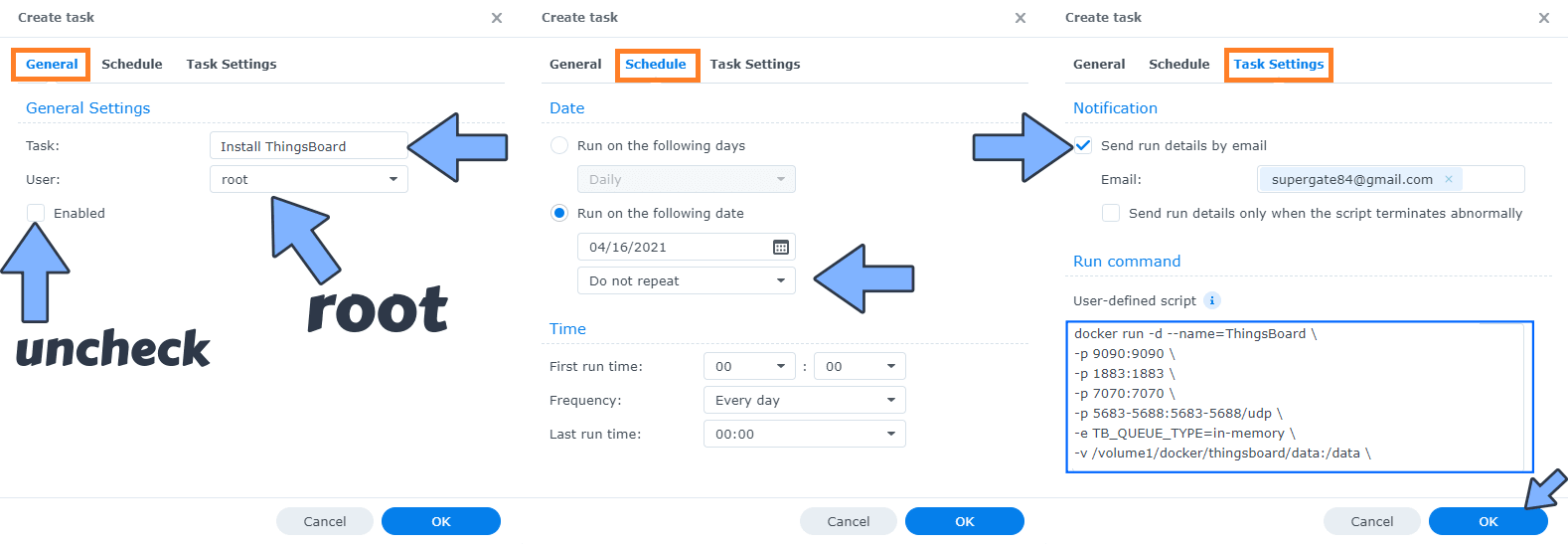
STEP 11
After you click OK on STEP 10 a new warning pop up window will open. Click OK.
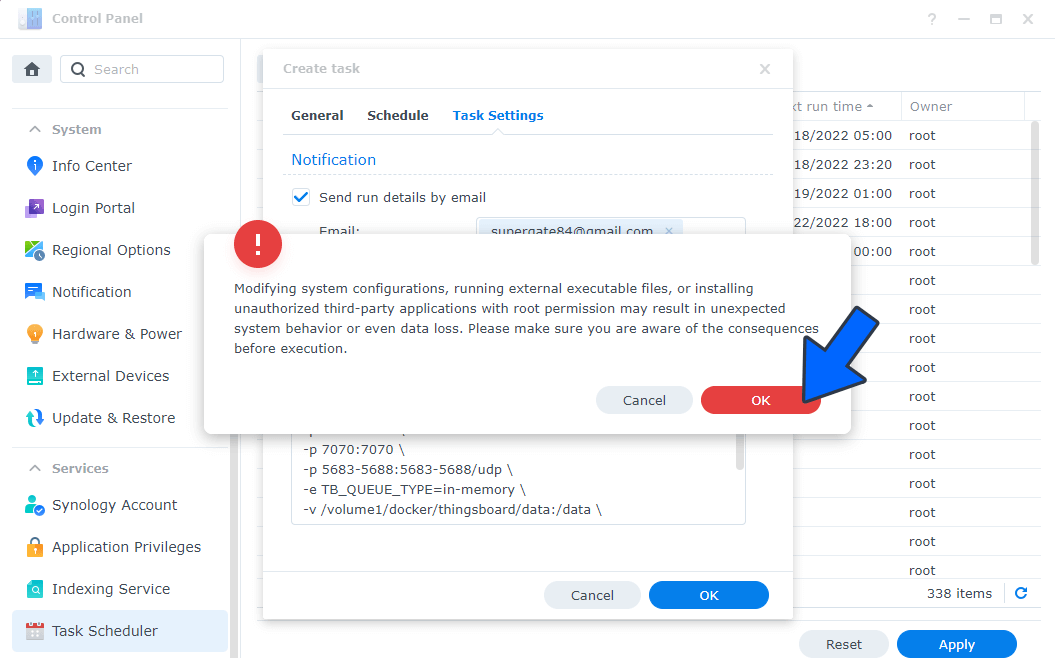
After you click OK, type in your DSM Password then click Submit. Follow the instructions in the image below.
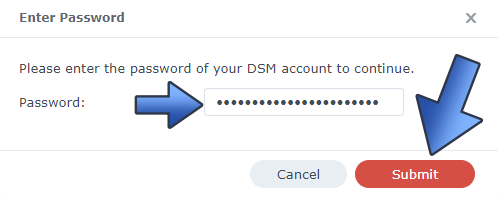
STEP 12
After you click Submit on STEP 11, select your “Install ThingsBoard” Task then click the “Run” tab. You will be asked to run Install ThingsBoard – click OK. Follow the instructions in the image below.
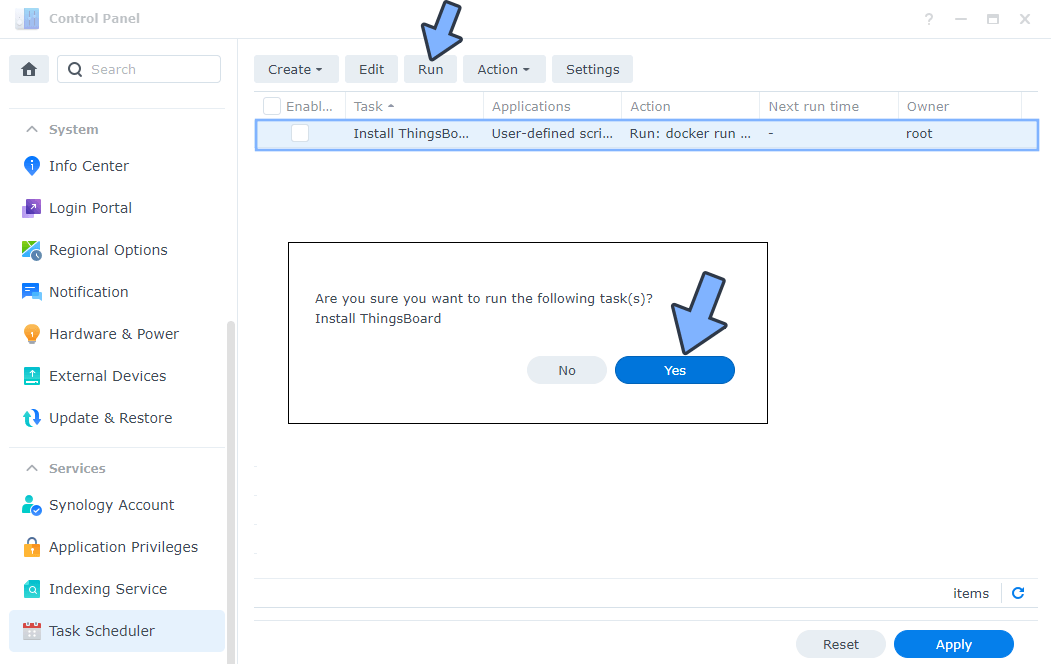
STEP 13
🟢Please Support My work by Making a Donation. Almost 99,9% of the people that install something using my guides forget to support my work, or just ignore STEP 1. I’ve been very honest about this aspect of my work since the beginning: I don’t run any ADS, I don’t require subscriptions, paid or otherwise, I don’t collect IPs, emails, and I don’t have any referral links from Amazon or other merchants. I also don’t have any POP-UPs or COOKIES. I have repeatedly been told over the years how much I have contributed to the community. It’s something I love doing and have been honest about my passion since the beginning. But I also Need The Community to Support me Back to be able to continue doing this work.
STEP 14
The installation process can take up to a few seconds/minutes. It will depend on your Internet speed connection. Now open your browser and type in http://Synology-ip-address:9090 Type in the default username and password, then click Login. Follow the instructions in the image below.
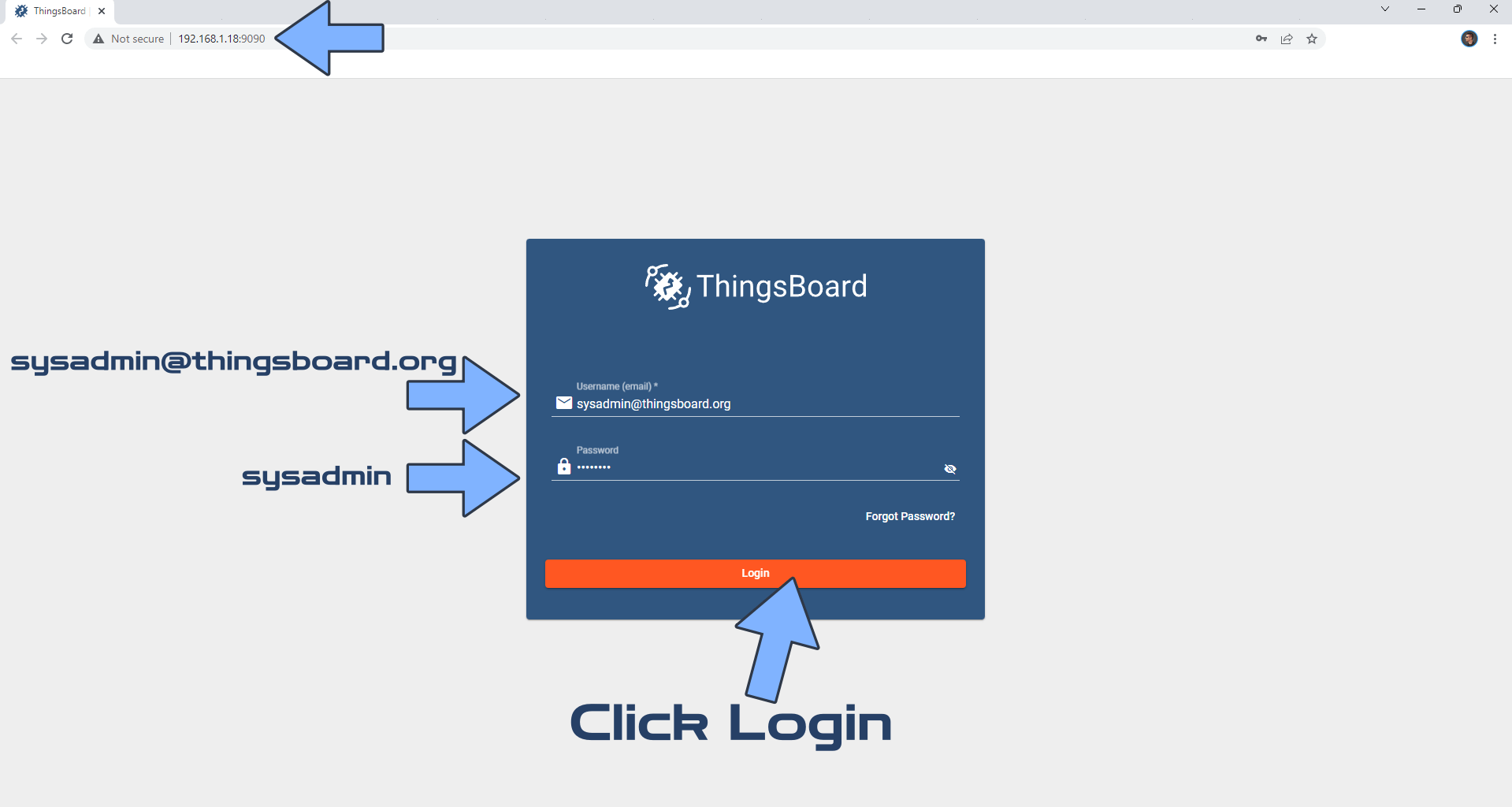
STEP 15
Enjoy ThingsBoard! At the top right of the page, click the 3 dots. Follow the instructions in the image below.
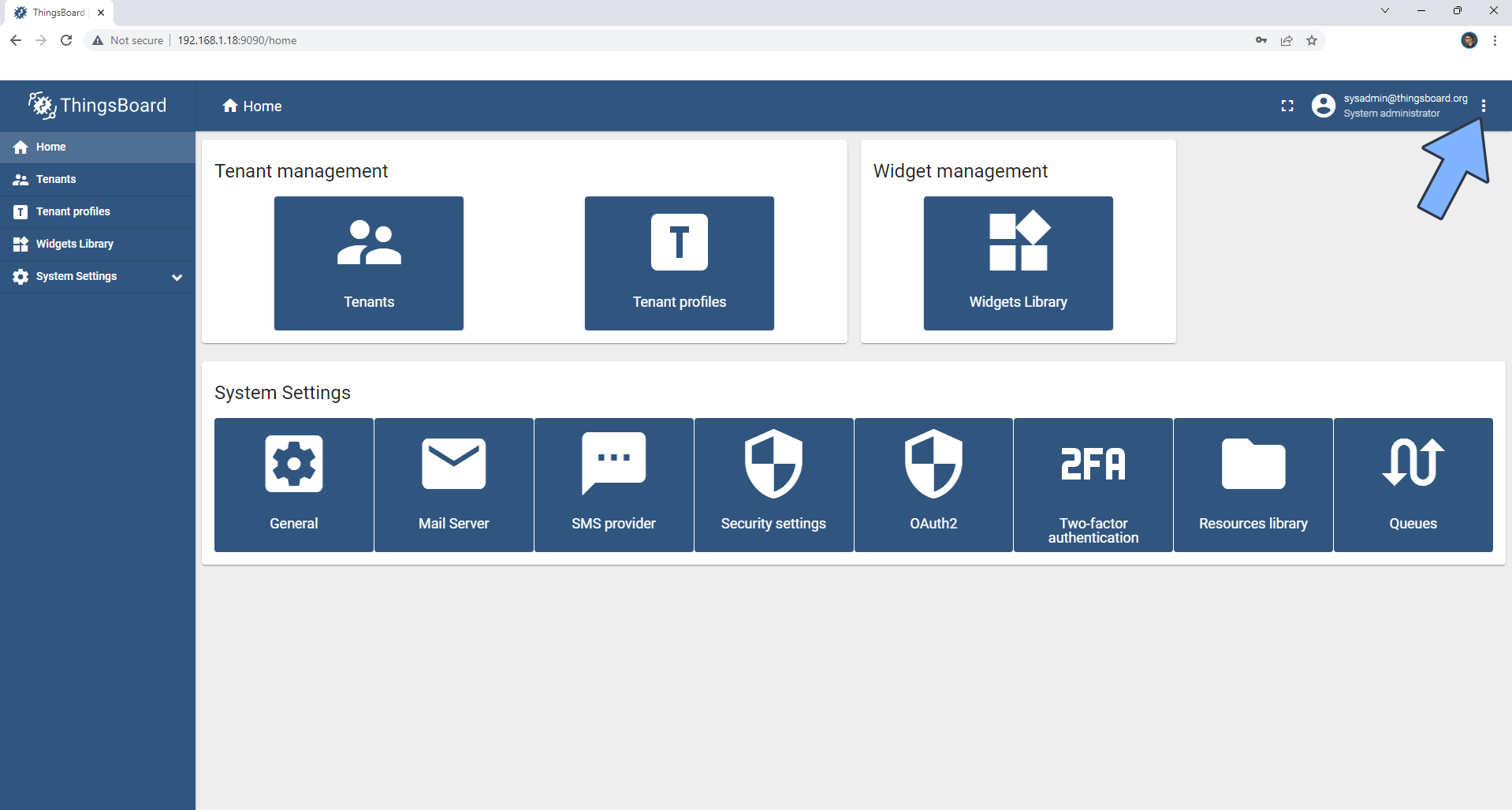
STEP 16
After you click the 3 dots, you will have two options: Profile to change the default email with your own email, and Security to change the default password with your own password. Follow the instructions in the image below.
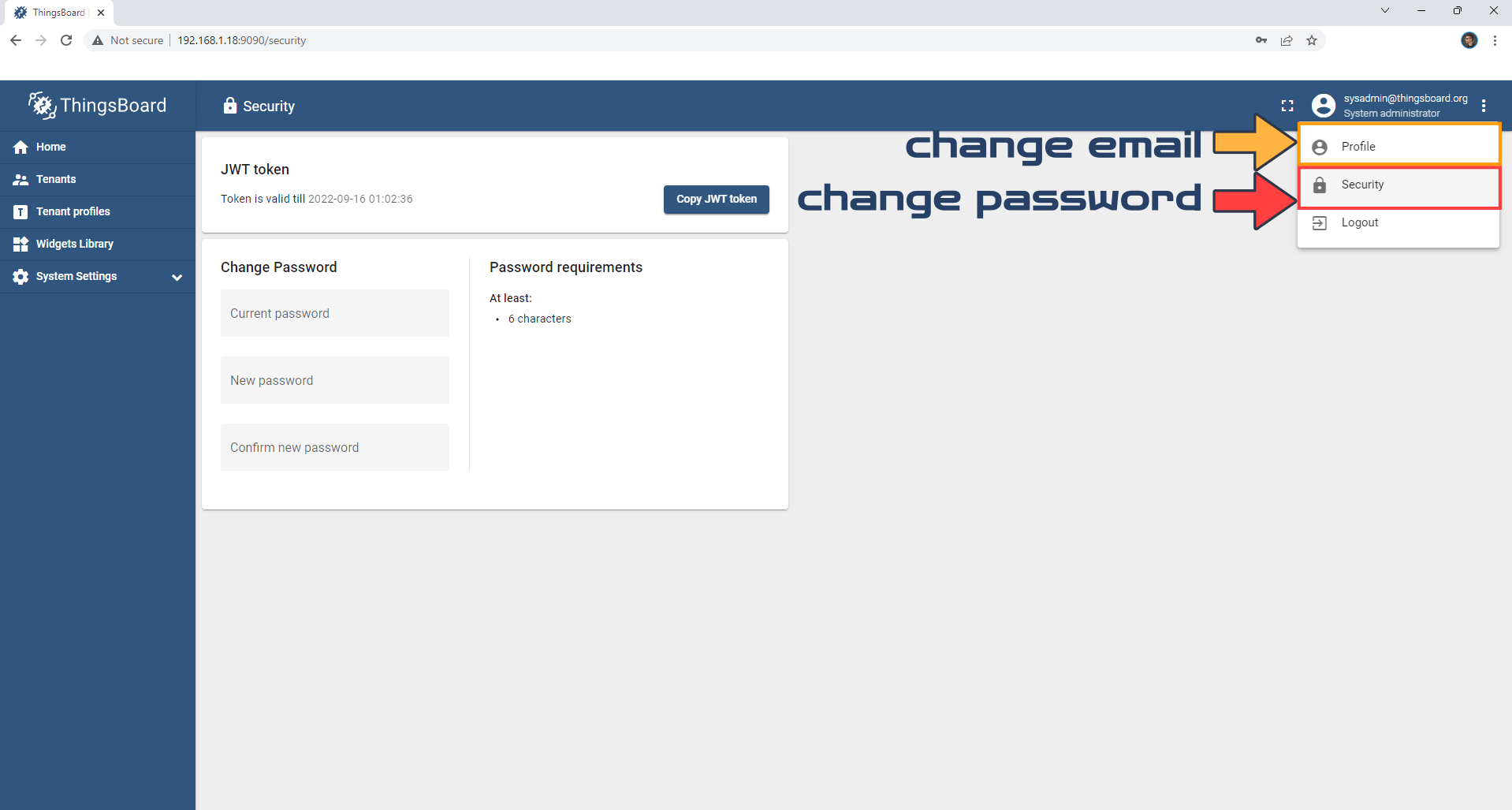
Enjoy ThingsBoard!
If you encounter issues by using this container, make sure to check out the Common Docker issues article.
Note: If you want to run the ThingsBoard container over HTTPS, check my guide on How to Run Docker Containers Over HTTPS. In order to make ThingsBoard work via HTTPS, it’s mandatory to activate WebSocket.
Note: Can I run Docker on my Synology NAS? See the supported models.
Note: How to Back Up Docker Containers on your Synology NAS.
Note: Find out how to update the ThingsBoard container with the latest image.
Note: How to Free Disk Space on Your NAS if You Run Docker.
Note: How to Schedule Start & Stop For Docker Containers.
Note: How to Activate Email Notifications.
Note: How to Add Access Control Profile on Your NAS.
Note: How to Change Docker Containers Restart Policy.
Note: How to Use Docker Containers With VPN.
Note: Convert Docker Run Into Docker Compose.
Note: How to Clean Docker.
Note: How to Clean Docker Automatically.
Note: Best Practices When Using Docker and DDNS.
Note: Some Docker Containers Need WebSocket.
Note: Find out the Best NAS Models For Docker.
Note: Activate Gmail SMTP For Docker Containers.
This post was updated on Friday / January 30th, 2026 at 1:33 PM
